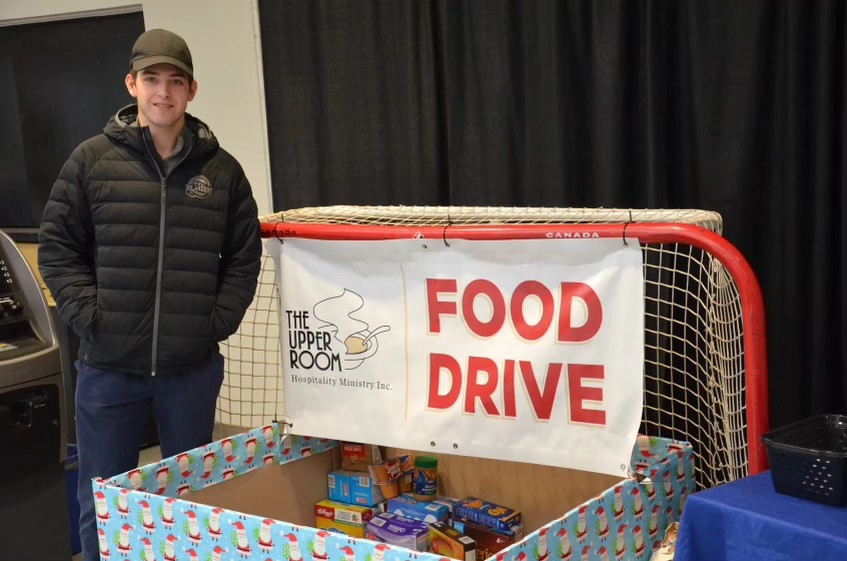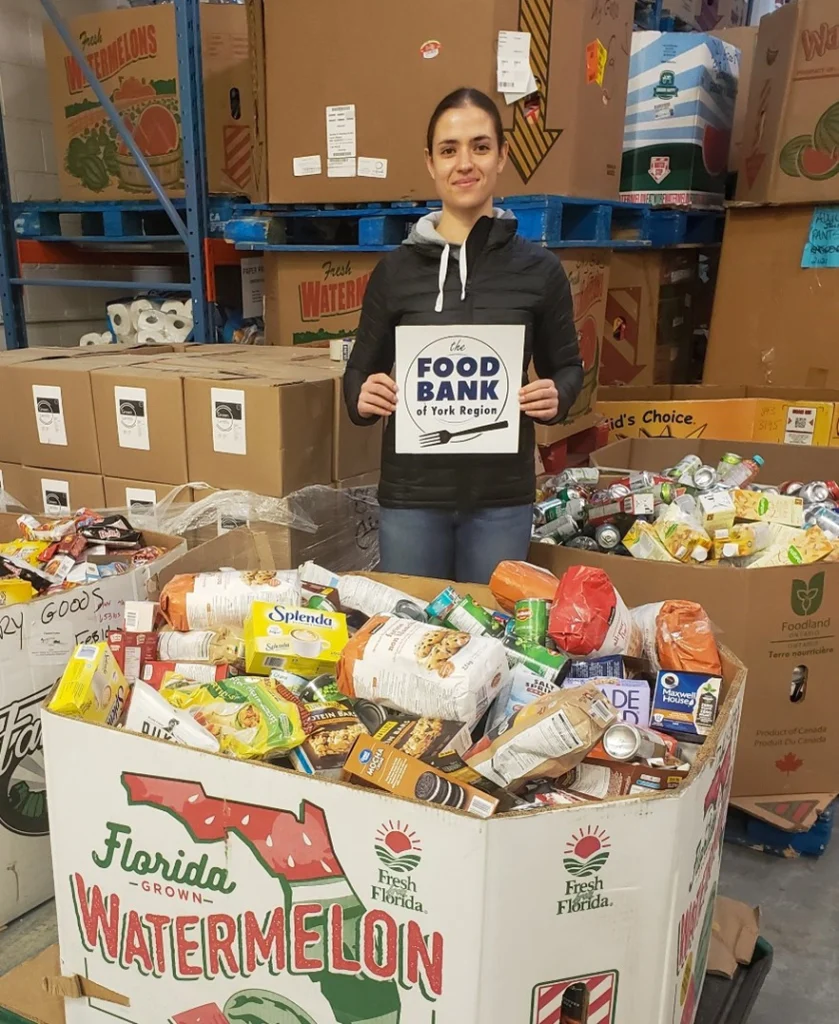For National Volunteer Week 2022, Food Banks Canada is celebrating volunteers who support the network of food banks and provincial associations working across the country to make a real difference in the mission to end food insecurity.
More than one in three food banks reported they did not have enough volunteers in our 2021 Food Banks Canada Network Survey. That’s why #NVW2022 is also about encouraging more people to bring heart to Canada’s food banks moving forward.
Join us as we salute some of the sensational food bank volunteers from the network. Learn more about why they decided to volunteer at a food bank, and the endless benefits of putting #EmpathyInAction.
Why volunteer at a food bank?
Volunteering—putting empathy into action—can help us expand our views and build awareness around different life experiences.
This is true for Charlottetown Islanders forward and team captain Brett Budgell, who started volunteering with The Upper Room Hospitality Ministry in P.E.I. after learning about northern food insecurity in a Grade 12 nutrition class.
“I did a project about Nunavut and the food insecurity going on there—the price of food is incredible,” Brett said. “After that project, I started to wonder what it’s like here in P.E.I. Sure enough, when I did more research, I found that food insecurity is a serious problem in Canada. I reached out to the Upper Room, and they were happy to have me volunteer.”
In addition to stocking shelves and helping with odd jobs around the food bank, Brett rallied the rest of his Quebec Major Junior Hockey League team to plan and promote a “Fill The Net” food drive, encouraging fans to donate non-perishable food items at Islanders games.

Originally from Newfoundland, Brett said volunteering for the Upper Room has been a rewarding way to give back to his host community.
“For me, the biggest thing I’ve learned working with the food bank is that anyone can fall on hard times,” he said.
READ MORE: National Volunteer Week 2021: The Value of One, the Power of Many
For Emelda Nnadi, her biggest lesson was on the importance of actively listening to clients.
As a University of Manitoba student who took the opportunity to apply what she was learning in nursing school as a contributing researcher for Harvest Manitoba, Emelda provided support by surveying adult Manitobans who rely on food banks.
While conducting the surveys, Emelda gained real world experience when it comes to the vital role of nurses in addressing non-medical factors that influence food security and health outcomes.
“As a nurse, these are things that we have to advocate for our patients, regardless of where they are—if they’re in the community or if they’re in the hospital,” she said. “For every individual you meet, they have their own specific determinants of health that are affecting them … This is something that I definitely learned here.”
It Only Takes One Person to Make a Difference
Even if you can’t commit to in-person volunteer shifts, Southern Ontario resident Emma Dagher said you can still find ways to make a positive impact volunteering for your local food bank.
After reading a newspaper article that said first-time food bank use was up 50 per cent in the York Region one year into the COVID-19 pandemic, Emma decided to start a food drive by convincing local businesses to collect non-perishable food items in-store.

With the flexibility to make her rounds once a week, Emma has managed to collect and donate more than 9,000 pounds of food to the Food Bank of York Region, equating to over $20,000 in donations.
“It’s been phenomenal,” Emma said of the ongoing food drive. “It’s really shed a light on how much people want to help.”
Approximately 40 per cent of food banks nationally are entirely run by volunteers. To find out how you can help in your local area, visit our website at https://foodbankscanada.ca/how-you-can-help/.
Do you know another amazing food bank volunteer we should get in touch with? Email communications@foodbankscanada.ca.

